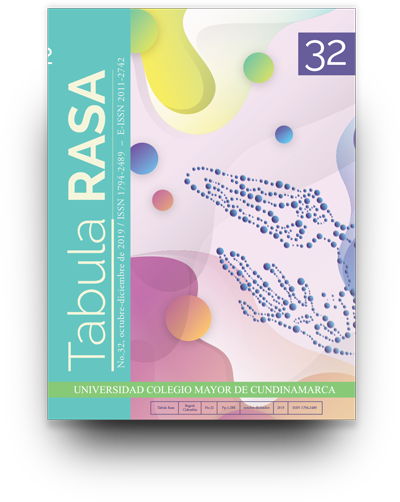The ontological, epistemological, and ethical status of laboratory animals : from speciesism to biophily and bio-ethics.
El estatus ontológico, epistemológico y ético de los animales de laboratorio : del especismo a la biofilia y la bioética.
Show authors biography
This paper suggests that, according to the philosophy of biology, laboratory animals are viewed as standards, models, instruments, and tools, and so on, which accounts for what we call the ontological and epistemological status of those organisms. However, in the studies here inquired here, the ethical status of these animals is not clearly stated. Therefore, we argue that such a situation is grounded on a speciesist approach, which we propose to overcome through biophily or bioethics. This paper ends advancing several future challenges, like, for example, to reflect upon how experiments using laboratory animal could be ethically justified.
Article visits 186 | PDF visits 91
Downloads
- Ankeny, R., & Leonelli, S. (2011). What’s so special about model organisms? Studies in History and Philosophy of Science, 42, 313-323.
- Castro, J.A. (2012). Las relaciones entre estilos de razonamiento y prácticas científicas como eje central de un proyecto de epistemología histórica. Tesis de Doctorado, Posgrado en Filosofía de la Ciencia. México, D.F.: Universidad Nacional Autónoma de México.
- Daston, L. (ed.). (2000). Biographies of Scientific Objects. Chicago: The University of Chicago Press.
- Dawkins, R. (2005). El capellán del diablo. Reflexiones sobre la esperanza, la mentira, la ciencia y el amor. Barcelona: Gedisa.
- Gruen, L. (1995). Los animales. En P. Singer, (Ed.), Compendio de ética. (pp. 469-481). Madrid: Alianza.
- Hacking, I. (2006). Le laboratoire. Course Collège de France. Recuperado de https://www.college-de-france.fr/site/ian-hacking/course-2005-2006.htm
- Kohler, R. (1999). Moral Economy, Material Culture and Drosophila Genetics. In M. Biagioli (Ed.). The Science Studies Reader. (pp. 243-257). New York and London: Routledge.
- Kohler, R. (1994). Lords of the Fly. Drosophila Genetics and the Experimental Life. Chicago & London: The University of Chicago Press.
- Kohler, R. (1993). Drosophila: A Life in the Laboratory. Journal of the History of Biology,26(2), 281-310.
- Leyton, F. (2010). Problemas bioéticos de la experimentación con animales no humanos. dA. Derecho Animal. Forum of Animal Law Studies, 1(3), 1-15. Recuperado de: https://revistes.uab.cat/da/article/view/v1-n3-leyton/202
- Morrison, A. (2003). Ethical Principles Guiding the Use of Animals in Research. The American Biology Teacher, 65(2), 105-108.
- Potter, V.R., & Potter, L. (1995). Global Bioethics: Converting Sustainable Development to Global Survival. Medicine & Global Survival, 2(3), 185-191.
- Rivero, P., & Pérez, R. (2007). Ética y bioética. En R. Pérez, R. Lisker, & R. Tapia (coords.), La construcción de la bioética. (pp. 13-24). México: Fondo de Cultura Económica.
- Shapin, S., & Schaffer, S. (2005) [1985]. El Leviathan y la bomba de vacío. Hobbes, Boyle y la vida experimental. Buenos Aires: Universidad Nacional de Quilmes Editorial.
- Singer, P. (2018[2011]). Liberación animal. 2ª ed. ampliada. Barcelona: Taurus.
- Weber, M. (2008). Experimentation. In S. Sarkar & A. Plutynski (eds.), A Companion to the Philosophy of Biology. (pp. 472-488). Oxford: Blackwell Publishing.
- Weber, M. (2005). Philosophy of Experimental Biology. New York: Cambridge University Press.
- Wilson, E.O. (1984). Biophilia. Cambridge and London: Harvard University Press.








